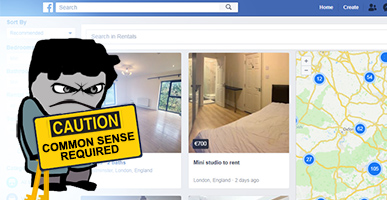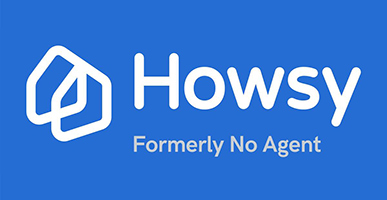
If you’ve found yourself here, it means you’re likely trying to market your rental property in order to find good tenants, all without the help of our beloved traditional high-street letting agent. Wise decision. You’ve come to the right place, probably.
In this section, I discuss all the steps required to find quality tenants quickly:
- Why you don’t need to use a traditional high street letting agent (and how much cheaper it can be without using one)
- Marketing a rental property (which includes how to advertise on the UK’s biggest property portals like Rightmove & Zoopla in order to maximise enquiries!)
- How to reference tenants the right way (so you avoid nightmare and crippling tenants)!
- Plus a lot of practical tips & tricks!
You don’t need a high-street letting agent or their extortionate fees!
A common misconception is that letting agents provide us with a skill set which can’t be duplicated by the average person/landlord. We assume that they have an advantage over us by having all the trade tools and resources. It’s all nonsense.
All agents provide us with is a service which most landlords don’t know enough about to confidently duplicate. But when you break it down, it’s not really that difficult or time-consuming to learn the essentials and more, which will enable us to find and manage tenants ourselves… for a fraction of the cost!! In fact, the methods I discuss in this guide won’t cost you more than £60. Now let’s compare that to prices the average high-street agent charges.
How cheap finding tenants can be
I’ve seen agents charge between 8%-15% of the rental income for their services (depending on the type of service). The most basic service agents’ offer is typically a “tenant-only” service, which is where an agent will find a tenant and leave the management role up to the landlord.
Let me show you how the figures stack up with a real example:
Let’s assume an agent has found me a tenant willing to sign a 12 month agreement. The rent is £1000 per month. Based on the lower end 8% fee, an agent would charge £960 as a fixed annual fee for their service. On top of the regular service charge, most agents charge a renewal fee, which means I would need to pay an additional annual fee if I wish to keep the same tenant after the 12 months expires. As you can see, the cost can easily escalate, and it usually does.
Over the past 5 years I haven’t used a single high-street agent, and my cost for finding tenants has been between £0 – £100.
The reality is, the internet has made it incredibly easy (and cheap) for landlords to find and market their own properties without the use of traditional high-street letting agents. One of the biggest enquiry generators for letting agents are UK property portals like Rightmove & Zoopla, but we don’t an agent in order to get our property on there, we can do it ourselves through self-service Online Letting Agents, the biggest being OpenRent.
Believe me, long gone are those days where we need to walk into a letting agents office and rely on their notably poor service and unjustified pricing structure (which are famous for being riddled with hidden fees). And that’s because we now have resources available at our disposal – the same resources professional letting agents use – to do the job ourselves, only with more care. Bear in mind, agents do get it wrong. Frequently. So why pay them to find a tenant when there are no guarantees they’ll be any good (after all, that’s all landlords really want, good tenants)?
So, it’s your call, you can either spend £1000 on an agent, or learn how to do it for £0 – £100. It’s a no-brainer for me. Remember, a buy-to-let investment is a business, so it’s about keeping costs down when and where it makes sense.
How to find tenants… efficiently and cost-effectively!
Here’s a few ways landlords can maximize the chances of finding tenants efficiently and cost-effectively, consequently minimizing void periods and saving a pile of cash!
Do you need to use all the methods listed? Not necessarily. But obviously the more methods you utilise to market your property, the more enquiries you’re likely to receive.
1Online Letting Agents
![]()
Ignore everything else on this damn page if you must, but trust me with online letting agents!
In my opinion, this is by far the best and most cost effective and efficient way of finding tenants, including HMO tenants. In fact, even tenants for commercial properties if that’s what you’re after.
High-street letting agents generate most of their enquiries through websites like Rightmove and Zoopla. Long gone are the days when local newspaper adverts and walk-in trade were the primary traffic drivers.
The only problem is, private landlords can’t directly upload their vacant properties onto Rightmove and Zoopla because they only deal directly with agents. However, that’s where an Online Letting Agent can help… and at very little cost.
All you need to do is sign up to an online agent, fill out a form requesting your personal details and the specifics of your rental property (including pictures), and for a small fee (approx. £50) they will distribute and market your property across all the biggest property portals like Rightmove. And then, all you need to do is watch the enquiries roll in and arrange and host the viewings.
When choosing your “find a tenant” package, it’s important to ensure your property is getting marketed across Rightmove and Zoopla, and quite frankly, pay no mind to any of the other portals- there is no substitute for those two beasts.
The amount of eyeballs Rightmove & Zoopla attract between them is insane- it’s literally in the tens of millions. I don’t think there’s any other means of tapping into as many prospective tenants.
The only exception I will make is for landlords that are looking to fill a vacant room(s) in shared accommodation (e.g. student house, lodger, HMO etc), in which case, SpareRoom.co.uk is also a fabulous option (more on SpareRoom up next).
Go here for more details on online letting agent.
2SpareRoom
 SpareRoom.co.uk is great for marketing single rooms in shared accommodation settings (the clue is in the name).
SpareRoom.co.uk is great for marketing single rooms in shared accommodation settings (the clue is in the name).
In fact, SpareRoom is by far the most popular portal for shared accommodation (e.g. HMOs, student lets, lodgers etc), even more so than Rightmove.
SpareRoom does allow landlords to market entire properties as well, but it’s not really known for that, so I personally wouldn’t rely on it for that scenario. I’ve personally never used SpareRoom for that purpose and I can’t imagine I ever would, especially when marketing on Rightmove and Zoopla is a far superior for that.
If you have a spare room to fill, then SpareRoom.co.uk is a must and should be your first port of call. Gumtree is also good for shared accommodation, so use them in conjunction and your marketing campaign should do well.
3Gumtree
 Most of you will know of Gumtree.com, it’s the biggest classified websites in the UK. It gets millions of visitors every day!
Most of you will know of Gumtree.com, it’s the biggest classified websites in the UK. It gets millions of visitors every day!
While it is a bit of virtual car boot market, where anything goes, it does attract an extremely high volume of prospective tenants looking for their next home. I’ve used Gumtree a few times and I’ve had huge success.
Some online letting agents will market your property on Gumtree as part of their core service. But the good thing about Gumtree is that it allows the general public (including private landlords) to use their platform directly to market vacant properties and rooms (unlike Rightmove & Zoopla) for free.
My only concern with Gumtree is that it doesn’t generate the highest quality leads. Sadly, many of the applicants are facing financial difficulties, and it’s also known for being a bit of breeding ground for scammers.
However, that said, Gumtree is a great lead generator and there are genuinely good tenants to be found there, but extra caution is definitely required when processing applications.
Obviously marketing your property on the likes of portals like Rightmove and Zoopla is the optimal method for finding tenants. However, if you want to maximise your chances, a Gumtree listing (in addition to other platforms) isn’t a bad option at all, and that’s especially true for when trying to fill a room in shared accommodation setting.
To be honest, I’ve received more enquiries from a Gumtree listing than Rightmove before (but as said, there is usually a big difference in quality, for reasons mentioned).
4Facebook Marketplace

Facebook marketplace is relatively new, but as you’d expect from a brand as big as Facebook, it’s popping off!
Facebook Marketplace is very similar to Gumtree, it’s an online marketplace where [Facebook] users can advertise items for sale.
Also similar to Gumtree is the fact that while Facebook can generate plenty of legitimate and valid enquiries, the quality of leads can often be lower than the traditional methods, so it’s important to ensure you rigorously vet all prospective applicants, and be wary of scams.
I’ve written an in-depth blog post on advertising Rentals on Facebook Marketplace which I highly recommend reading if you’re interested in using the platform to generate enquiries from prospective tenants.
5DSS Tenants
Ever heard of DSS tenants? They’re essentially tenants in receipt of Housing Benefits, which means much of their rent, if not all, is covered by financial aid provided by the Government.
As a landlord, you may come across DSS tenants at some point, specifically when applying for tenancies. I advise all landlords to get familiarised with what a DSS tenant is before even looking for tenants. Just so you know what you’re dealing with.
The beauty with DSS tenants is that they’re particularly easy to find and at no cost. Needless to say, there is a reason for that. But i’m not here to judge, I’m here to make you aware of your options. Here’s a guide on how to find DSS tenants for free.
During your search for tenants, it’s highly probable that a DSS tenant will apply, and you need to know exactly what that means and not blindly just ignore the potential implications.
6 Social Media
As much as I hate to say it, Social Media actually works.
It’s not the most effective method by a long shot, but it’s amazing how effective sending out a tweet or updating your Facebook status at the right time can be. Even if it doesn’t work, what’s the worst that can happen?
Most people these days are involved with a social media platform, whether it be Facebook or Twitter. The great thing with these social networking sites, Facebook in particular, is that they provide a quick and easy way of connecting with all your local friends and family.
I’ve actually found a tenant in the past by setting my Facebook status to:
“2 bedroom property for rent in Church Langley, Harlow. £775pcm. Anyone interested, or know anyone interested?”
The thing is, you NEVER know who is looking for a property to rent, or who knows someone who is looking. Spreading the word among your local peers via Facebook is always worthwhile because it’s so damn quick and easy to do.
7Ask your neighbours
This sounds odd, but it’s incredibly effective. I’ve successfully found tenants a few times by doing this.
All I did was ask the neighbours (of the BTL property, not my home, although you could ask both sets of neighbours), and enquired whether they knew of anyone suitable that would be interested in renting the place next door to them.
You might be pleasantly surprised by this tactic! It’s another one of those methods that is so quick and easy to execute that it doesn’t make sense not to at least try.
Marketing
Before even starting the finding process, you need a strategy.
Well, not quite a strategy, we’re not invading a county here. But you will need to determine what it is you’re actually offering and how you’re going to deliver it.
It doesn’t matter if you’re leading the search party to find tenants, or whether you’re passing the responsibility onto a letting agent, you still need to ensure any marketing material put out there is appropriate and effective.
1Research / Asking price
Every landlord wants to charge as much as possible, maximizing their rental income. However, that can often be a damaging decision because it could mean less enquiries and a longer vacant period, which will end up costing more than if you had marketed your property competitively in the first place.
It’s important to ask for the going rate, and no more, even if you think your property is worth more. Price yourself based on what the market dictates, and not what your ego is blubbering.
I recommend keeping an eye on the rental rates in your area, and then marketing your property just under market value i.e. if the average for a 3 bed semi is £1000, market yours at £950. You’ll generate a lot more enquiries during your marketing campaign, which will reduce the void period, and potentially make you more than if you had marketed at the going rate or above. But more importantly, the tenant will feel they are getting a good deal and therefore will stay longer– a tenant that stays longer keeps your overall costs down and your profit steady.
How much should you charge? Look through websites like Rightmove/Zoopla and see how much other properties are demanding in the same area for a similar property. It might also be worth talking to a few letting agents. However, bear in mind, agents generally price high because their commission is a % of the rental amount, so don’t just accept their word, do your own research.
2Be Descriptive
It doesn’t matter if you’re advertising on a shop window or on Rightmove, you still need to make your proposition appealing and easy to digest. Getting eyes on your advert isn’t enough. It’s a start, but it won’t generate the right enquiries.
One of the biggest mistakes landlords make with their adverts is that they’re lazy- they don’t provide anywhere near enough information. Not only does that reduce enquiry rates, but it also opens the door for a lot of time-wasting.
Your advert should be descriptive and informative. Provide relevant details and highlight features:
- Public transport links
- Local schools
- Crime rates (if it’s low)
- Parking space
- Front/back garden
- Number of bedrooms and dimensions
- Number of bathrooms
- Condition of property
- Local amenities/attractions
- If furnished, include items e.g. sofa, tables, beds etc
- Mention any white goods that come with the property
List everything and everything that will add value, but make it easy to read and don’t go over the top.
3Accept it? Then say so!
Rightly or wrongly so, many landlords refuse to give tenancy to DSS tenants and/or Tenants with pets, but by doing that, they’re actually excluding themselves from a massive audience.
For example, according to a recent survey by the Dogs Trust, 78% of pet owners have experienced difficulty finding accommodation which accepts pets. And according to ‘Pet Friendly Rentals’ by not accepting pets, you will be decreasing your potential market by 50%.
So if you’re prepared to accept tenants that often get excluded (for whatever reason), ensure your marketing material is an inclusive advert e.g. mention that your “PET FRIENDLY” – it could have a significantly positive impact on the success of your marketing.
4Target Audience
Trying to reach out to every demographic is like trying to please everyone. It never works, and it’s generally a waste of time.
Don’t try to attract students, families, young couples and professionals all at the same time. You need to determine what your property is best suited to host, and that’s usually best determined by understanding the needs of the different tenant types. Once you know that, you can build a marketing campaign around your key audience and have a much more effective campaign, which results in higher conversion rates.
For example, if you have a 1 bedroom flat, you’re going to be targeting couples and/or single tenants. Make it clear that your property is PERFECT for either of those tenant types, and mould your property around that demographic. If there’s a spare room (not quite big enough for a bedroom), make it suitable for “office space”, and not a “playroom”
Think about your key audience and consider their needs and apply it to your marketing campaign by preparing your property with their needs in mind!
6Incentives
If you’re really struggling to find tenants, despite the fact you know you’re offering a decent property, it could be a case of having stiff competition. When tenants are spoilt for choice in a booming market, they’re going to take advantage of it- and you can’t blame them for it. So it might be a case of ‘dangling a carrot’, so to speak.
Spend a little extra by giving your prospective tenants incentives to choose your property over someone else’s. Incentives like free broadband and/or digital TV are always desirable features.
While this extra outlay may seem expensive, it’s not, especially if it means filling a void that just doesn’t want to get filled (insert sexual innuendo)!
More details: Provide tenants with incentives
7Photography
Don’t underestimate the power or importance of photography. Good photos generate leads, which inevitably reduce costly void periods- there is no doubt about it.
Many landlords seem to forget they’re trying to sell an extremely expensive product, yet they market their property like they’re selling peanuts.
Every time I see a rental property marketed on a website like Rightmove without images, I want to cry myself to sleep. It’s literally money down the drain, and the agent responsible should be hanging their head in shame.
High quality photography is one of the most powerful marketing tools for generating enquiries. Prospective tenants are much more likely to enquire if they see images.
Take high quality photos and let your pictures do the talking, it’s imperative.
I’ve written quite a comprehensive guide on what kind of images work and how you get professional photography, because I believe it’s that important (and because so many landlords/agents still don’t seem to get it). I highly recommend you check it out the guide on Professional Property Photography for Landlords
Referencing / Viewings
Generating enquiries is only the first step of filling your vacant property, and it’s definitely NOT the most important step.
Finding “good tenants” is key, because the alternative is getting lumbered with a parasite that will cut through your time, sanity and profits like smouldering butter. And believe you me, there’s certainly no shortage of parasites out there.
It doesn’t matter how or where you source a tenant, whether it be through an experienced local high-street letting agent or through your own (un)experienced hands, there are always poor tenants slipping through the net.
Alas, the rental sector is rife with opportunists looking to get away with murder, so it’s our responsibility as landlords to ensure we stay clear from them. While there is no silver-bullet solution to avoiding bad tenants altogether, we can certainly stack the favour in our odds by being vigilant, particularly during the referencing phase.
1Processing Applications
One of the most annoying aspects of hunting down a new tenant is the massive time-wasting that comes along with it, especially if you’re not vigilant from the get-go.
If you asked me to tally-up how much time is consumed on average by all the tire-kickers, unsuitable applicants and total blaggers that apply for each tenancy, it wouldn’t be entirely surprising if I’m left with very little faith in humanity.
It can be tedious beyond belief, especially if you get inundated with applicants (which is becoming more and more common as the rental market grows).
A common mistake landlords make when processing tenancy applications is granting and scheduling every applicant with a viewing slot. There’s usually no need to do that, unless of course, you want to needlessly waste a buttload of time.
Minimising time-wastage by separating the wheat from the chaff is crucial. Not only for the sake of your sanity, but also because you’re more likely to end up with better quality tenants.
You should only be scheduling viewings with suitable applicants. Typically, that means someone that is employed and has a suitable salary; someone that can get a guarantor; someone that can provide references; someone that fits the lifestyle of your property.
Experienced landlords will typically do one of two things to identify the chaff:
- Conduct a phone interview with all applicants. I say “interview” for the lack of a better word, but it’s never as formal as an interview- it only needs to be a friendly chat. You can download this tenancy application form and run through the questions over the phone.
This is probably the most telling method, as you can tell so much by how someone conducts themselves on the phone.
- Email each applicant the same tenancy application form, and get them to complete it.
Trust me, construct a screening process before you take viewings, and you’ll be surprised and overjoyed by how many idiots and unsuitables you almost met.
In the past, some applicants have actually been disgruntled by the screening process, and it’s sent them running for the hills. That only means the pre-viewing screening process is working, because any reasonable person will understand and happily assist with answering the questions.
2Viewings
Lettings agents take viewings on a day-to-day basis, they’re allegedly the professionals.
Many landlords use the services of letting agents purely for the avoidance of not having to deal with viewings, and that’s cool. I totally get it; taking viewings can be a complete pain in the ass. However, in my opinion, you’d be much better served taking your own viewings (if you can).
After years of experience, I’ve come to the realisation that landlords are inherently always going to be better equipped at referencing tenants and finding tenants than an agent, and that’s because we will always naturally care more about our property than anyone else.
So that means, during a viewing, we’re more likely to pick up on signs which make it clear whether or not the applicant is suitable, and these are signs an agent, through no fault of their own, aren’t genetically wired to detect. I’m talking about paying attention to things like mannerisms and hygiene (yes, really), both crucial qualities that we all want in a tenant, agreed? We all want a polite tenant that upholds certain standards of hygiene, right? These are aspects some agents completely ignore, because they’re busy focusing on payslips and employment references. But the reality is, there is so much more to a ‘good tenant’ than simply what’s on their application form, and landlords are generally better at processing and detecting those other attributes that make for a good tenant. But more importantly, recognise when they’re missing.
If you’re not convinced, here’s a more in-depth article on why I believe landlords should take their own viewings.
If you are convinced, and you’re ready for the challenge of taking viewings (wise decision, by the way), here are a few of my top tips:
- Don’t accept the first interested tenant just to keep the void period to a minimum: new landlords are often so eager to fill their vacancy ASAP that they end up accepting the first application for the wrong reasons.
Yes, the first application might legitimately be the best applicant, but it’s dangerous and high-risk to accept the first interested applicant just to keep the void period to a minimum!
It’s usually best to take the time to assess all applicants so you get an overall better picture.
- Don’t stop taking viewings: so many landlords make this reckless mistake, so I urge you to refrain from falling victim because it may end up costing you.
Do NOT under any circumstances stop looking for tenants until you have completely secured a tenancy, which means someone has 1) paid their deposit 2) paid their first month’s rent 3) signed contracts 4) moved into the property (strictly speaking, point 4 should not even occur unless 1-3 have been completed).
Until all the above is fulfilled, keep on taking viewings and processing applications. Tenants frequently delay move-in dates or pull out of the deal all together, and the majority of the time, there’s little landlords can do to recoup that lost time/money because nothing has been signed.
Don’t take your tenants’ word or allow them to earn your trust at this early stage, regardless of how much interest and intention they show, it means nothing until they actually move in. Absolutely NOTHING!
- Be flexible: try to be flexible with you timing and availability. You want as many people through the doors as possible, so if that means you have to postpone meeting your mates down the pub, to squeeze in a viewing, then so be it. Tenants rarely wait around, so if you leave them waiting too long, you’re effectively telling them to go away.
- Know your property: you should know the details of your property, which includes: 1) how much the council tax is 2) which utility suppliers are currently connected to each service 3) how the boiler works 4) location of local amenities. The more you know, the better. Be prepared.
- Be honest: if you don’t know the answer to a question, be honest. Don’t go down the path of fabricating answers, because it will come back to haunt you. Furthermore, don’t make promises you can’t keep, always be direct and honest.
Cover all the essential details: reconfirm with the tenant what you expect in terms of rent, the length of the tenancy and the conditions you have in place regarding smoking and pets.
- Ask questions: don’t be afraid to ask the tenant relevant questions, like why they’re vacating their current premises, how much they’re currently paying etc. Be curious and don’t be shy.
All these questions will help give you a sense of the tenant’s character and intentions, which is extremely important.
- Be on time: The only thing worse than knowing little about what you’re selling is turning up late to sell that product you know so little about. Be respectful by being on time. Punctuality goes a long way and starts the process off on a positive note.
- Don’t be pushy: if you need to force a hard-sale, then there’s something wrong with the property. If you did your homework and prepared your property appropriately, it should sell itself.
What if I can’t take my own viewings?
I completely appreciate it’s not always possible for landlords to take their own viewings, so for practical reasons it makes sense to outsource the workload to a local letting agent – and stump up the lofty fees.
At one point in time I would have agreed. But not anymore. Not today.
So if you’re on the verge of waving the white flag because you’ve come to the realisation that you can’t do *this* without a letting agent, consider this your bucket of chilling water over your head moment.
Services like Viewber exist, and they exist to solve your particular dilemma.
Viewber provides a popular ad hoc hosted viewings and inspection services for landlords. No contracts or tie ins, just use and abuse when required.
So if that’s an option that sounds intriguing (because it’s still a buttload cheaper than using an agent), I implore you to look deeper into Viewber’s services.
Extra resources for processing applications
3Tenant Referencing
This is by far the most important step of finding a tenant, Tenant referencing. So many landlords casually skip past this step, and then they complain when they get screwed over by rogue tenants.
Finding good tenants takes diligence, and a lot of it is down to common sense. Tenant referencing is usually broken down into 3 areas:
- Employment history
- Rental history
- Credit history/rating
They’re the aspects letting agents will usually focus on. However, that’s just scratching the surface. Other factors like gut instinct, personality, first impressions etc. they can all help build a case for your tenant. I’ve written several articles on referencing tenants, and I insist invite you to read them in order to minimize your risk:
Preparation
Before letting your property and taking viewings, there are just a few bits you need to take care of…
1Presentation
It goes without saying that no one wants to live in a miserable bucket of turd. So, before taking viewings, it’s imperative to ensure the place looks and smells clean. And, don’t neglect the garden (common mistake).
The odds are massively in favour of a well presented property as long as the price is right. Remember, there’s no point taking viewings if you’re trying to flog a dead horse, because you’ll be wasting everyone’s time, including your own.
You may also want to consider ‘dressing’ your property before taking photos for advertising and showing your prospective tenants round. You don’t need to be an interior designer to put a rug on the floor and chuck a few cushions on the sofa to give a place a homelier feel.
And whilst it requires extra effort (and perhaps expense), research shows that a furnished and dressed property receives 75% more interest than an unfurnished property (even if the property is going to be eventually let as unfurnished).
2Legal Obligations
Every day new and experienced landlords are getting prosecuted across the nation for failing to meet their legal responsibilities and obligations. They’re literally having to pay thousands of pounds in penalties. It’s scary stuff. Avoid this mistake.
Before letting your property, you should ensure certain legal requirements are met, such as:
- Energy Performance Certificate – note that you’re not legally allowed to start marketing your property without of these bad boys!
- Valid Gas Safety Certificate
- Electrical Safety
- Landlord License
For more details on the above and other landlord legal requirements, go to the Landlord Legal Responsibilities, Obligations & Regulations post.
3Contracts / Landlord Forms
You’re going to need landlord contracts, most notably a Tenancy Agreement and a Tenancy Guarantor Form.
Disclaimer: I'm just a landlord blogger; I'm 100% not qualified to give legal or financial advice. I'm a doofus. Any information I share is my unqualified opinion, and should never be construed as professional legal or financial advice. You should definitely get advice from a qualified professional for any legal or financial matters. For more information, please read my full disclaimer.


 Landlord Products / Services
Landlord Products / Services














































![Finding Tenants With OpenRent [Review & FREE Trial Offer] Finding Tenants With OpenRent [Review & FREE Trial Offer]](https://www.propertyinvestmentproject.co.uk/wp-content/uploads/openrent.jpg)


























